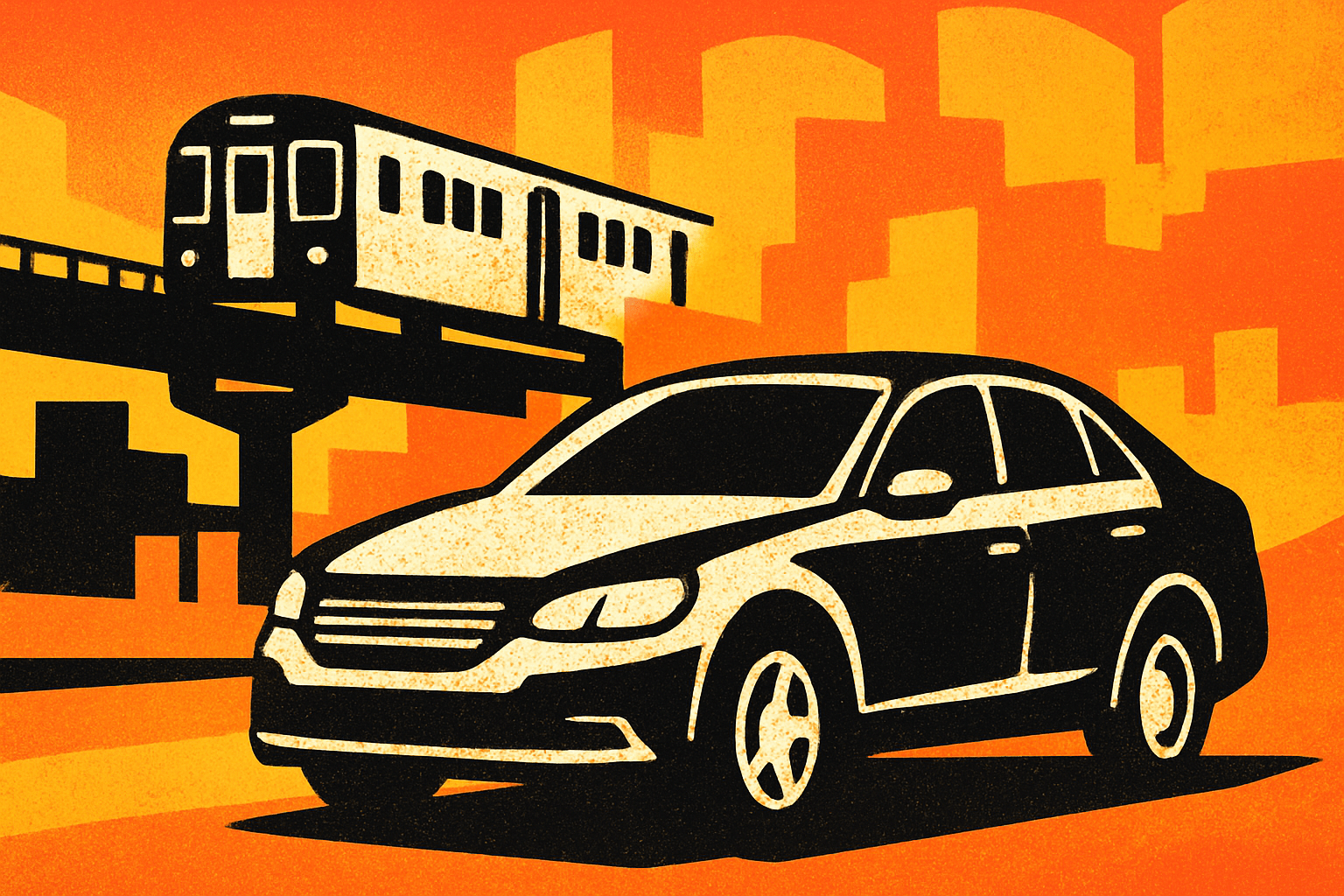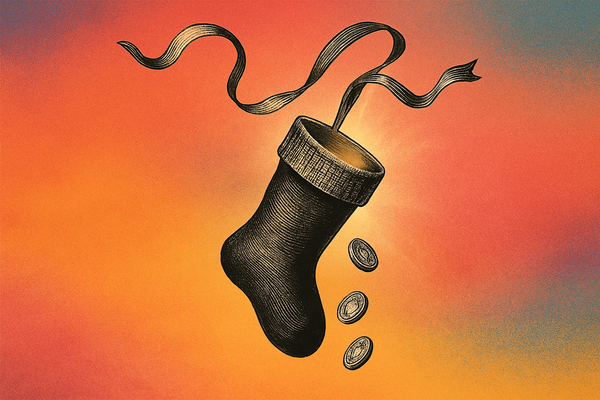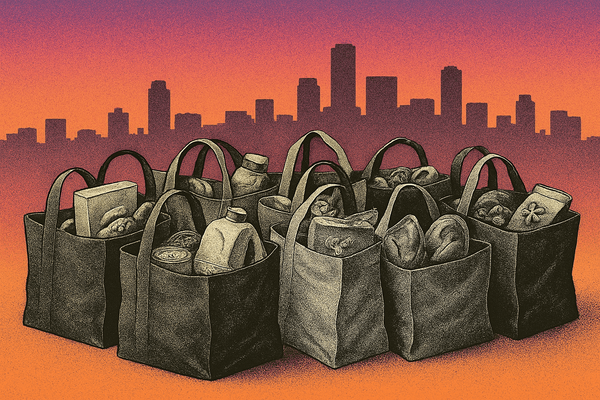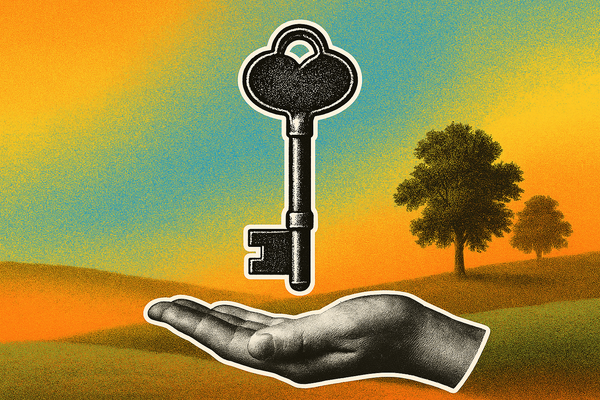Is Uber and Rideshare Cheaper than Owning a Car?
We crunched the numbers to see whether Uber and rideshares are cheaper than owning a car. The answer depends on two things: how much you drive and how flexible your household can be.

Every time gas prices spike or insurance premiums rise, you have to ask: Is owning a car still worth it?
In 2025, it’s not as clear-cut as before. For some households, the cost of owning a car has gone up so much that using rideshare, car-share, or transit could actually save money. In other cases, having a car is still necessary, but maybe not two.
Instead of guessing, we crunched the numbers. Let’s take a closer look.
The Cost of a Car in Canada Today
Car ownership in Canada has ballooned.
- A 2025 Ratehub report found that the average monthly cost of owning a car in Canada is $1,370. This includes payments, insurance, gas, parking, maintenance, and depreciation. Depreciation isn’t a direct cash amount you pay out each month, but it does mean your car loses value over time, which affects what you’ll get if you sell it.
- Rising fuel costs are a big factor. Gas prices in Canada have changed a lot this year, starting at about $1.55 per litre and now closer to $1.35. If we use an average of $1.45 per litre, someone driving 20,000 km a year would spend about $192 a month on gas.
- Insurance is wildly uneven. The average annual premium in Toronto is about $2,400. In rural Ontario, it can drop closer to $1,800, while in BC it often tops $2,000 because of ICBC rates.
All of which adds up to a number that surprises people. When you add it all up, owning a car can easily cost between $15,000 and $20,000 a year: not just the lease or loan payments, but everything included.
That’s the baseline. Now let’s see how it compares with real alternatives.
Case Study 1: Downtown Toronto Couple
Profile:
A couple that lives in a condo in downtown Toronto. Both can commute to work via TTC. They own a modest sedan, which was bought new three years ago. They need to pay for parking in their condo. They mostly use their condo for grocery runs and trips out of the city.
Ownership math:
- Lease/finance: $450/month
- Insurance: $200/month
- Gas: $192/month
- Maintenance/tires/registration: $100/month
- Parking: $100/month
- Depreciation beyond loan payments: $100/month
- TTC costs for commuting: $200/month
Total: $1,342/month
Alternative math:
- TTC monthly passes for two: $312/month
- Uber 15 rides/month (avg $20): $300/month
- Car-share/rentals (IKEA runs, short rentals): $250/month
- Miscellaneous (occasional parking, surge fares): $50/month
Total: about $912/month
Verdict: They could save $430/month, or more than $5,160/year, by giving up the car. The trade-off is flexibility: no spontaneous road trips without planning ahead. But in pure dollars, Uber, ride share, rentals and transit easily come ahead.
Case Study 2: Rural Ontario Family
Profile:
A rural Ontario family of four lives in a house, with both parents commuting separately and two kids active in sports. Most activities, including the kids' sport practices and groceries, are 10-15 kms away. They own two vehicles: one SUV and one sedan.
Ownership math:
- SUV lease: $850/month
- Sedan loan: $400/month
- Insurance: $300/month
- Gas (30,000 km/year between both): $288/month
- Maintenance/tires/registration:: $200/month
- Parking: free
- Depreciation: $200/month
Total: $2,238/month
Alternative scenario:
Full reliance on rideshare and transit isn’t realistic here. Wait times are long, and trips would be costly. But we can model out what it looks like to shift from two cars to one:
- Keep SUV (all-in: ~$1,442/month)
- Add occasional rental/ride-share for the second driver: ~$200/month
Total downsized: about $1,642/month
Verdict: Cutting one car saves this family about $600/month. The first is a necessity given distance and transit scarcity, but almost $7,200 could be saved each year by cutting down to one car.
Case Study 3: Metro Vancouver Professional
Profile:
A professional living in Burnaby commutes downtown by SkyTrain, using a compact car mostly for grocery runs and weekend trips. Parking at home is free, but downtown parking is $20/day when used.
Ownership math:
- Loan payment: $750/month
- Insurance (ICBC): $210/month
- Gas (10,000 km/year): $96/month
- Maintenance/registration: $80/month
- Parking: $80/month
- Depreciation: $100/month
- Transit pass: $150/month
Total: $1,466/month
Alternative math:
- Transit pass: $150/month
- Car-share/rental car (groceries + weekend trips): $400/month
- Uber/Lyft 10 rides/month: $250/month
- Miscellaneous (ferry, parking during rentals): $50/month
Total: $850/month
Verdict: By dropping the car, this professional could save around $615/month. That’s over $7,400 a year for a vehicle that’s underused.
The Pattern
Across these three scenarios, the pattern is clear:
- Urban cores: Alternatives are considerably more affordable than owning a car, even with generous Uber and rental car use.
- Rural areas: Ownership is still essential, but trimming from two cars to one unlocks major savings if it works for the household.
- Mixed metro areas like Vancouver: Alternatives become attractive once annual mileage drops under ~10,000 km.
The break-even point is usage. If you’re putting 25,000+ km on your car every year, alternatives can’t keep up. But once you fall below 12,000 km, the math turns quickly.
What to Do If You’re on the Fence
- Audit your usage. Look at your odometer or insurance renewal. Are you really driving enough to justify $1,500/month?
- Map the alternatives. Check local car-share coverage, estimate Uber fares for your top ten trips, and add a transit pass.
- Run a downsizing test. If you own two vehicles, park one for a month and see if you can get by.
- Count the hidden costs. Depreciation and parking are killers. Even if you forget them in your monthly budget, they’re real drains.
- Factor in lifestyle. The math can say one thing, but if your area has poor ride share and transit service or your schedule is unpredictable, that flexibility will absolutely be worth the premium. Or if your kids have two hockey practices twice a week at the same time, it will be hard to get by with just one car.
Bottom Line
The average Canadian car is idle 95% of the day. Which means you’re paying a lot of money for something parked in a driveway.
The takeaway: it's always worth it to run the numbers. For urban households, rideshare, transit, and car-share are eating into the old assumption that “everyone needs a car.” For rural families, the car still rules, but running the numbers may prove that the second car isn't necessary.





